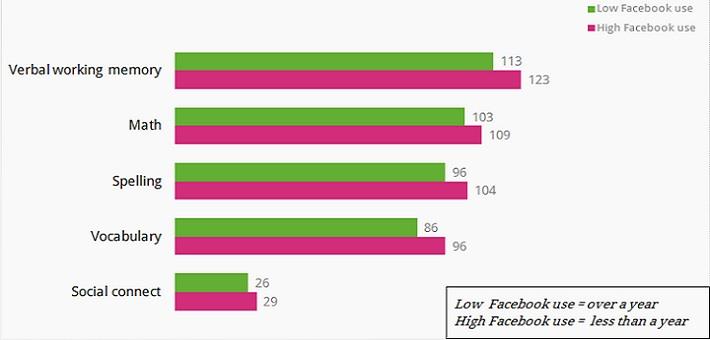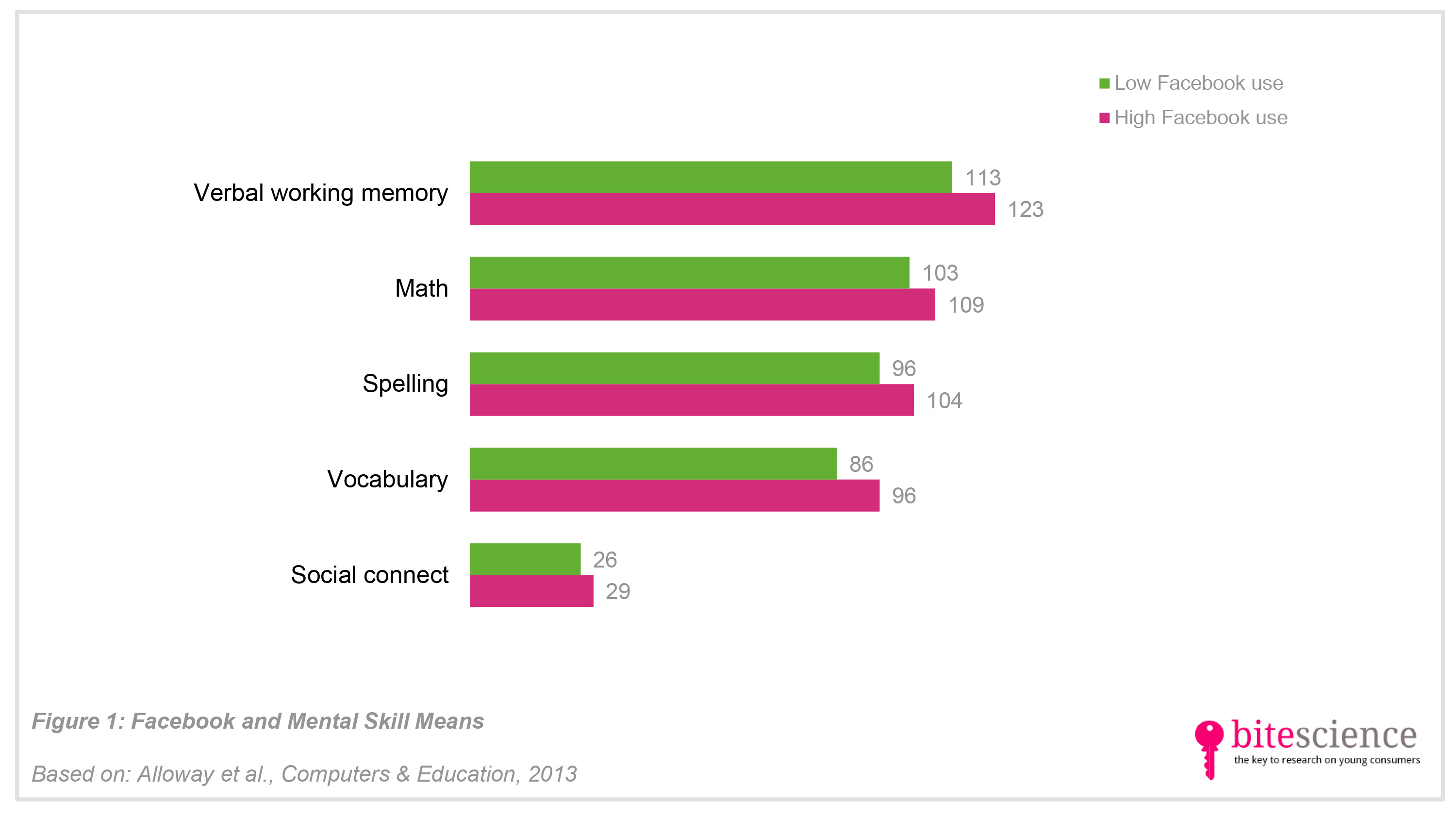
21 May 2013
Does Facebook Make High School Students Smarter?
Keywords: media, survey, teens, Websites, Western Europe, education, internet, social media,
Social networking sites (SNSs) are extremely popular among young people. This popularity often raises concerns, because the use of SNSs is associated with possible risks, such as cyberbullying. However, according to a study published in Computers & Education there are also potential benefits. The study shows that British teens who have had a Facebook account for over a year have better developed mental skills.
Take aways
- High school students who use Facebook for over a year have better developed mental skills.
- The frequency of Facebook use (every hour or once a month) does not affect these skills.
- Teens who have been using Facebook for a longer time feel more connected to their family, friends, peers, and society.
Study information
The question?
Do social networking sites impact teens’ mental skills?
Who?
104 15-and 17-years old high school students (mean age: 15 years old; 52% girls).
Where?
United Kingdom
How?
All students took a vocabulary, spelling, and math test. They also filled out a survey about their social media use. Only 56 students completed a verbal working memory test.
Facts and findings
- High school students who had a Facebook account for over one year had greater scores for verbal working memory, vocabulary, and spelling compared to those who had an account for a shorter period (see Figure 1).
- There was no difference between the lengths of using Facebook for students’ math scores.
- However, using YouTube did not affect the teens’ mental skills.
- Also, there was no difference in mental skills between active (every hour) and regular (once a month) Facebook users.
- Students who were longer Facebook user felt more connected to their family, friends, peers, and society (see Figure 1).
- The majority of the teens had a Facebook account (85%) and 99% used YouTube once a month or more.
- Critical note: this study does not allow for any conclusions about cause (using SNSs) and effect (teens' mental skills). The results only show that there is an association between using SNSs and better cognitive skills.
